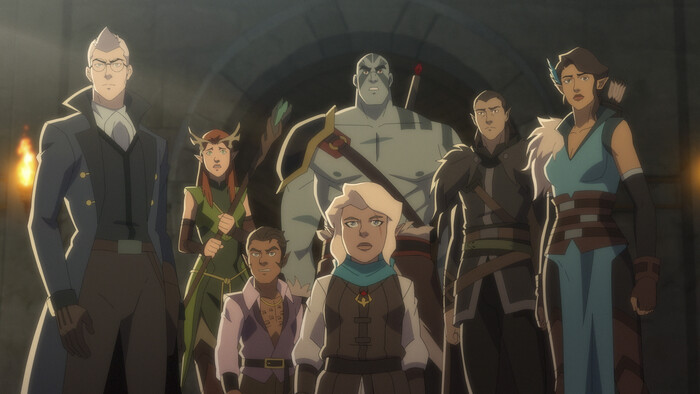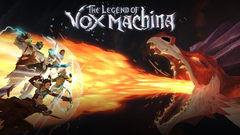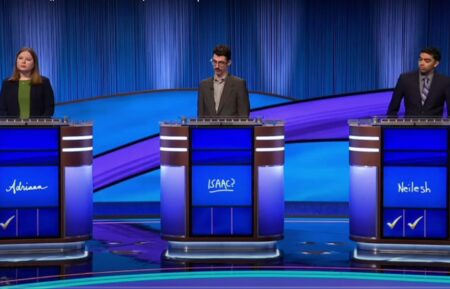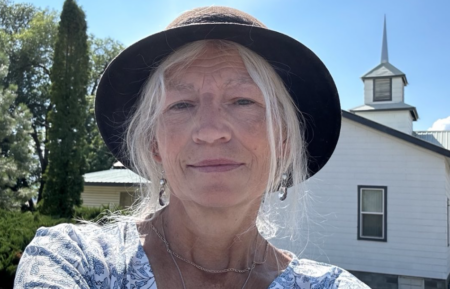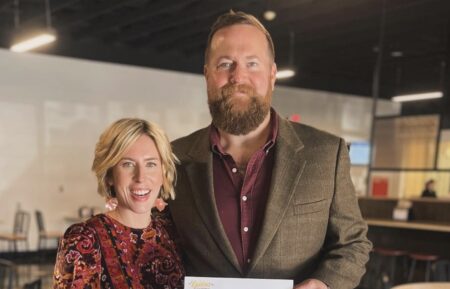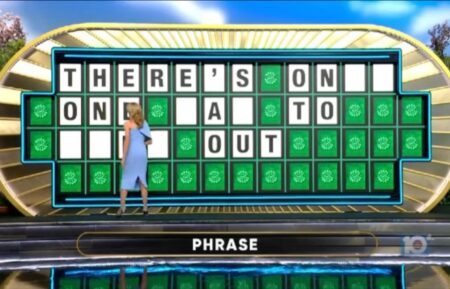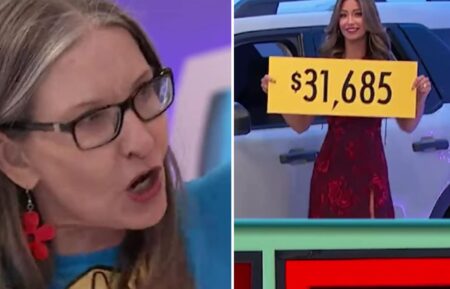‘The Legend of Vox Machina’: Why Keyleth Is the Flawed TV Character We Need Right Now
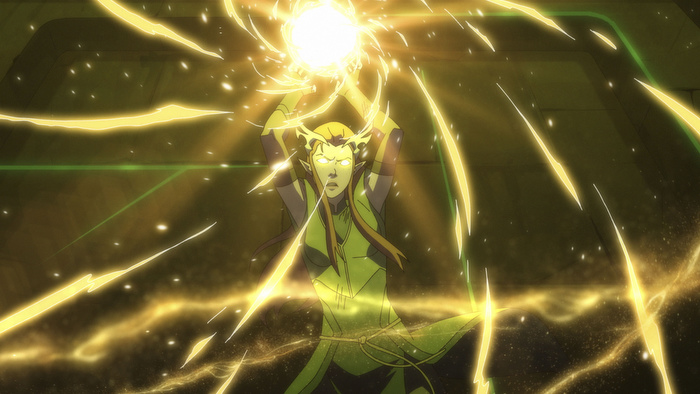
Opinion
“We did that! We did that, right?”
The quote, from the first season of The Legend of Vox Machina, could sum up the character of Keyleth The Air Ashari (voiced by Marisha Ray) in a nutshell. Despite being powerful and determined, Keyleth is never one to bust into a situation with confidence and arrogance; in fact, her biggest struggle with herself and within the group known as Vox Machina is self-doubt and insecurity. We see it when the group defeats big dragons and monsters, being surprised that her spells and ideas actually worked. We see it when she tries to insert herself into friendly interactions, only to face awkwardness for not reading the room correctly.
Keyleth’s anxieties — the crux of which, Ray revealed in an interview a few years ago, were somewhat related to her own personal feelings when she sat down to play Dungeons & Dragons with established voice actors like Ashley Johnson and Laura Bailey — are a part of what made her such a controversial character when the tabletop game was streaming. Maybe fans saw her playing choices as a form of second-hand embarrassment, in that seeing someone so open and vulnerable was a mirror: they saw themselves in her decisions and feelings and it was easier to brush that off than embrace and take ownership of it. Or maybe it was the fact that people didn’t fully understand the slow burn of Keyleth’s journey and why learning how to believe in herself and love herself were essential arcs of her character since the campaign started airing long after the character had been established in the group’s home game.
The Legend of Vox Machina may be taking place years after the first campaign ended in 2017, but it shows us that Keyleth’s most notable traits haven’t changed: she’s still socially awkward, unsure, and hesitant. She still second-guesses herself and she makes the wrong decisions. And the animated series is doing something remarkable: it’s opening up Keyleth to an entirely new segment of fans, both new and old, who are falling in love with her endearing nature and struggles with self-confidence and seeing her in an entirely different way than people did a few years ago. The narrative of the show — especially the second season, which is allowing the character to come into her own and take on more responsibility — is proving that the very things that made the character so contentious in the first place are the things that make her one of, if not the most, valuable and relatable character in the adventuring group.
In the episode “Pass Through Fire,” one of three episodes released today as part of The Legend of Vox Machina‘s ongoing second season, fans get a little more insight to Keyleth’s story. At the beginning of the episode, we see the character as a child, undergoing an emotional moment as her mother Vilya (voiced by Janet Varney) leaves for her Aramenté: a journey to learn and master the skills needed to become the leader of her tribe. Throughout the episode, we see Keyleth understanding the scope of her power for the first time, being scared of it, and in the present day, ultimately overcoming her fear of mastering it when the group travels to a town called Pyrah, where part of her tribe (the Fire Ashari) live and are being threatened.
When Keyleth arrives in Pyrah she finds her father, who assumes his daughter has come to help them after having been off on her own Aramenté like her mother. Keyleth is embarrassed and ashamed about the fact that she hasn’t yet completed any of her trials and can’t find the right words to tell him. She tries to avoid confrontation by helping in the fight as much as possible, but it’s clear that her abilities aren’t at the level they should be and as a result, her father is injured in the process. Overcome with emotions and guilt, Keyleth finally admits the truth and we learn that Vilya never returned from her journey, something that obviously weighs on her — after all, if her powerful and knowledgable mother couldn’t accomplish her tasks, how could Keyleth possibly do it?
“I’m sorry, dad,” Keyleth says tearfully. “The truth is, I haven’t finished my trials. I’m too scared. I’m not ready.”
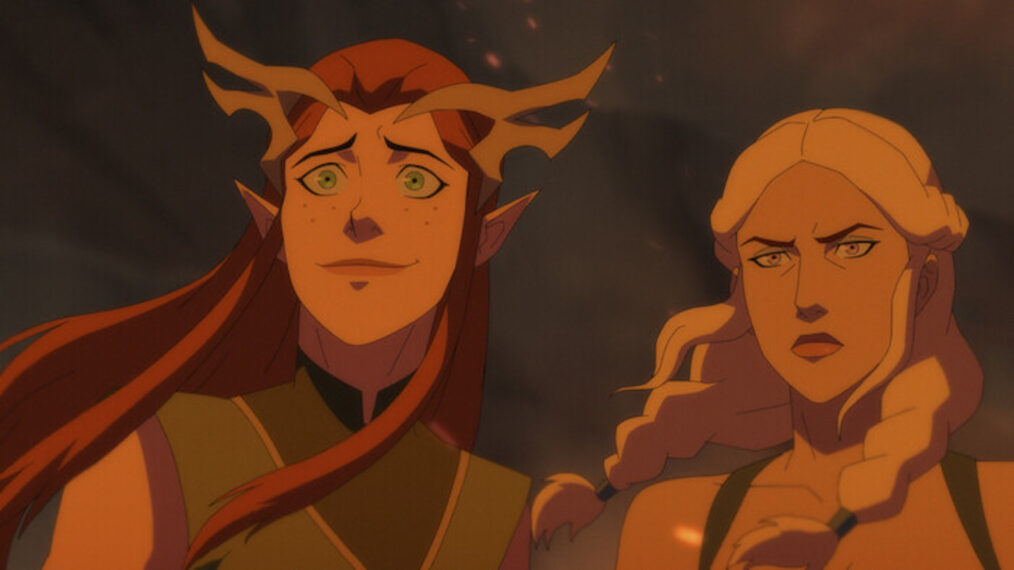
Amazon Studios
In that moment — in her most vulnerable moment — she shines.
Different mediums of pop culture allow us to connect with characters in specific ways. While watching an actor on a live-action television show, we might feel the way they react to certain situations or see ourselves in things like body language and even wardrobe choices. But animation is different. It’s our imagination that drives us; we can’t completely relate to a fantasy world but we can embrace our emotions through made-up characters and relate to them in ways that we might never have considered otherwise. When, for example, her friends are hesitant to go to Pyrah and help its citizens, Keyleth’s response is to angrily turn into an eagle and fly away. It’s a move that could be considered comparative to how Ray sometimes made rash decisions playing at the table, but in animated form, we don’t view her decision as an issue. We sympathize with it. And when Keyleth determinedly walks into flames, still fearful but declaring “I was made to pass through fire,” we understand how much strength it takes for someone dealing with so much doubt and pain to literally push their way through their biggest anxiety.
As Ray put it to TV Insider earlier this month, “it’s kind of fun to walk that path again, just in a different form.”
Because the truth is, we need to see flawed, vulnerable characters like Keyleth in the media. In real life, no one is strong all the time and no one is perfect, even if they’re pushing through as if nothing is wrong. We all have doubts, we all have trauma, and we all have experiences that have molded us. As fans and consumers of pop culture, we need to see a character arc like Keyleth’s because we need to be able to relate to it. We need to watch someone start at the bottom and have a rocky journey before ascending to the top and becoming successful. Keyleth’s life hasn’t always been easy, and struggling with anxiety and worry and self-doubt doesn’t make it easier. Despite all of that, she pushes on. She still tries her best. She still fights for the people she cares about. Not only is that admirable, but it also drives home her empathy for others and herself — it makes her a true leader.
The Keyleth we see at the end of the episode — the one who gains her father’s approval and her friends’ respect — isn’t the same one we saw at the beginning. But this new version of the character hasn’t lost her vulnerability. She hasn’t lost the feeling of being scared. What she’s gained is the ability to believe in herself, a step that slowly lets her evolve into the leader she was always meant to be. The episode itself is less than a half-hour, but it manages to convey one of the most truthful journeys of a fictional character because we’re allowed to see how messy Keyleth is, and how empowering it is when she rises so successfully out of that messiness.
When TV Insider sat down with the cast of The Legend of Vox Machina at New York Comic Con last year, everyone spoke about what was on the horizon for their characters in season 2. Ray’s response? “Keyleth is continuing her journey to find herself and self-confidence. And that builds pretty nicely over this season. She gets to become a little bit more of a boss bitch.”
So far, the season has certainly allowed Keyleth to grow and laid the foundation to build the path she’s paving to become that “boss bitch” Ray describes her as. But if she still harbors a little vulnerability and hesitancy, and if she still has trouble at times in believing herself and needs to be honest about it along the way?
Well, that’s perfectly OK too.
The Legend of Vox Machina, Prime Video, streaming now


